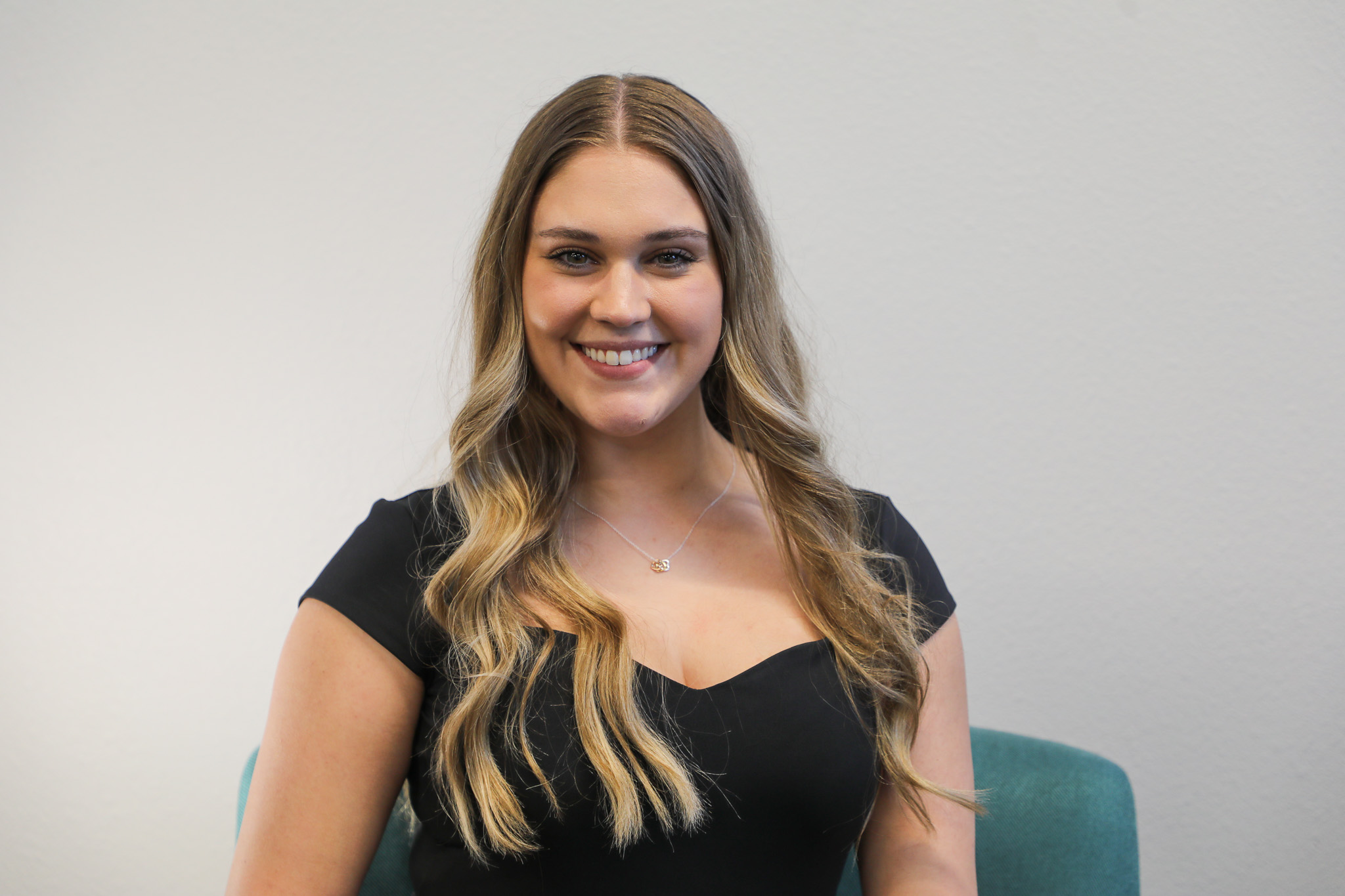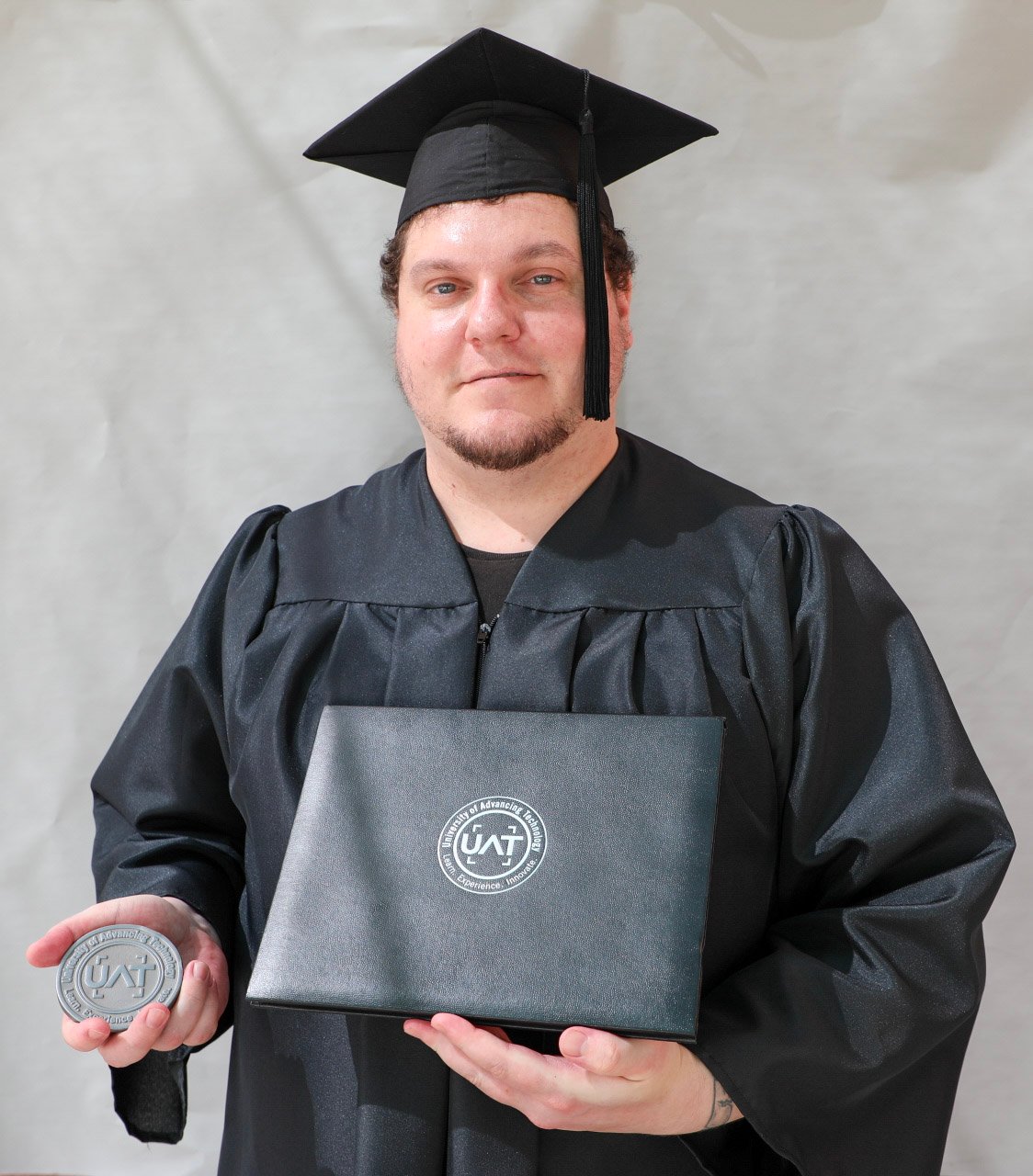In an era where cybersecurity is paramount, few can bring the unique blend of experience and insight that UAT Professor, Briant Becote, PhD, offers. A veteran of both the Army National Guard and the U.S. Navy, Professor Becote's journey is as diverse as it is inspiring. From his early days as a bandsman to a distinguished career as a Naval Officer, he has navigated the complexities of military life, acquiring invaluable skills and perspectives along the way. Now, as a Cyber Security Professor, he leverages his extensive background to educate the next generation of technology leaders. In this interview, we explore his motivations for joining the military, the lessons learned through rigorous training, and how his experiences have shaped his approach to teaching and mentoring students today. Join us as we delve into the remarkable story of a man who has dedicated his life to service and education.

What were some of the reasons that you joined the military? How did you choose your branch of service? How many years did you serve?
I enlisted in the Rhode Island Army National Guard as a bandsman (a saxophone player) just a week after turning 17 (Army photo attached, 1997). In exchange for my service (playing concerts and parades throughout the year), I was able to use the band's new and excellent musical instruments. I had access to any instrument I wanted to learn and addition to being paid to play!
I served in the Army National Guard for four years prior to joining Active Duty, US Navy in 2001. My grandfather served in the Navy for over 20 years and my father served in the Army during the Vietnam War. I chose the Navy as I wanted to see the world.
How many years did you serve?
I served in the Guard for four years, and Active Duty Navy for 23 years.

Tell me a little about your time in bootcamp.
I participated in three bootcamps. Army bootcamp, Navy bootcamp, and Office Candidate School. Unlike Enlisted bootcamp, in Office Candidate School, attrition is the mission. I don't think it's an exaggeration to say Marine gunny sergeants that would rather be on the front line of [insert war of choice] take some measure of pleasure in breaking down officer candidates to the studs.
What was your primary job after training?
My rate (Enlisted job in the Navy) was Surface Sonar Technician (STG). One of the few roles in the Navy in which you're both a technician (required to fix sonar electronic gear) in addition to being a tactician (Sonar Technicians are directly responsible for directing ship movement and tactical employment of sensors and weapons during anti-submarine operations).
I was selected for Commissioning (the process to become an Officer in the military) after serving for nine years as a Sonar Tech. I was commissioned as a Naval Flight Officer (NFO) in 2010 and flew/supported a variety of aviation platforms including the P-3 Orion, the P-8 Poseidon and was one of the original officers of the Navy's first squadron of MQ-4C Triton unmanned aircraft.

Where were you stationed and where did you travel while in the service? Where were you stationed and where did you travel while in the service?
I was stationed San Diego and Japan (while enlisted), Newport RI (Office Candidate School), Pensacola FL (Aviation Training), Jacksonville FL and Bahrain (as an Officer). I've deployed to, traveled in, and operated from all over the world to include over 25 countries.
Tell me a funny story you experienced that could only happen in the military.
All the funny stories I experienced that could only happen in the military I can't tell you about 😉
How do your military experience affect your life today?
One of the most unique aspects of over a decade of service as a Naval Officer is the variety of roles you're required to fill. From training, maintenance, admin and operations to leading organizations and serving as an international liaison - there isn't much I haven't done. I led the establishment of a nonprofit store for our squadron that required the same budgeting, purchase, and logistic requirements that any for-profit sales organization would require.
Tell me a couple of your most memorable experiences.
In the process of starting that nonprofit, my social security number was incidentally attached to the squadron's store sales. The IRS audited me for three years suggesting I owed an additional $50,000 in taxes!
 How do your military experience affect your life today? How did your military career lead you to your career now, and UAT?
How do your military experience affect your life today? How did your military career lead you to your career now, and UAT?
Having traveled, lived and worked throughout the world, I have a broader perspective than most. Being a Sonar Technician taught me to be an electrician and a plumber (I know right), and being a Naval Officer taught me lead people, programs, teams and organizations. The Navy offered me the opportunity to learn and grow through education - and after joining with only 12 college credits, I retired in December of 2023 with two master's degrees and a PhD without any student loans. Having the opportunity to give back to students on their journey through education and the unique approach that UAT offers led me to becoming a Cyber Security Professor.
Ready to Become a Digital Defender?
Take the first step toward a cybersecurity career. Request information or apply today — it's quick, easy, and there’s no application fee.
Together, we can build a safer digital future. Start your journey at UAT today!





Comment